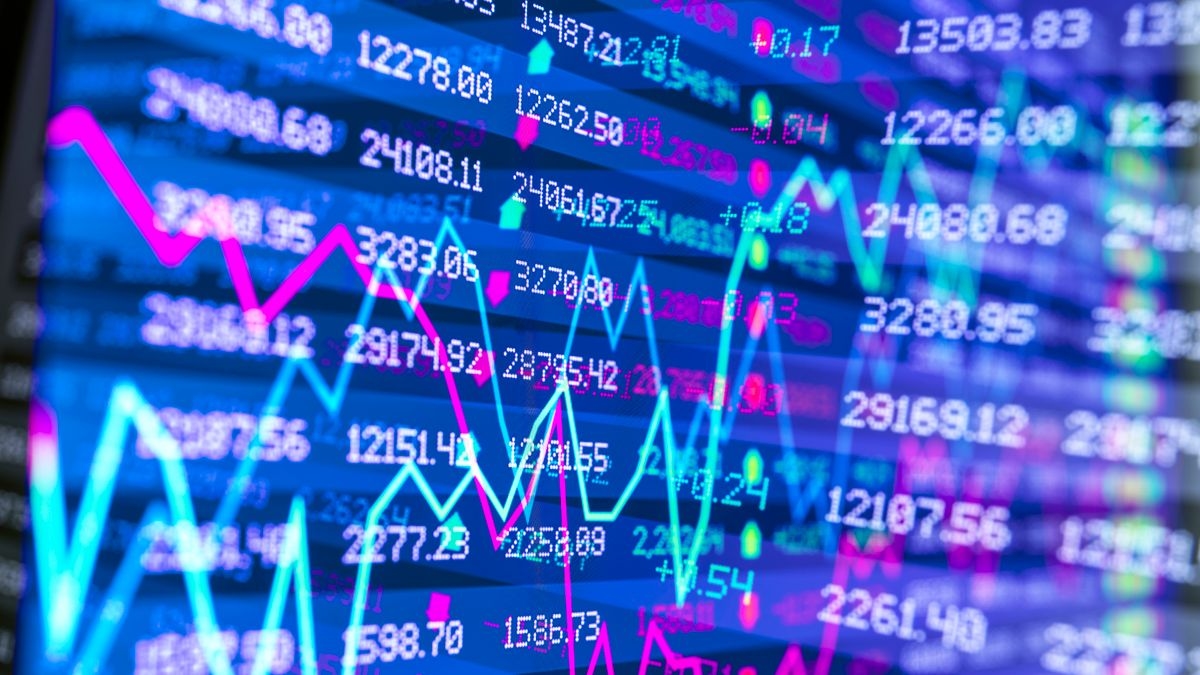Stock market: Dax with further gains, DHL and Aixtron in demand


Ups and downs on the stock market: The most important information on the Dax, Dow Jones, share prices and oil prices
Photo: Westend61 / Getty ImagesThe DAX's string of favorable trading days is expected to continue on Wednesday. Support is also coming from overseas stock markets. Stock markets in the US gained on Tuesday, and Asian stock markets were also largely in positive territory. The agenda in Germany will otherwise be driven primarily by numerous companies releasing their quarterly reports.
After six days of gains, the DAX rose 0.5 percent to 22,533 points shortly after the market opened. The March record high of 23,476 points is getting closer. However, the road to the top is likely to be rocky, as the next technical resistance already lies at just over 22,570 points. The MDAX , which represents mid-cap companies, rose 0.8 percent to 28,672 points at the start of trading. The Eurozone's leading index, the EuroStoxx 50, rose 0.2 percent to 5,174 points.
In the turbulent month of April, which is coming to a close, the DAX is now up a good one percent. However, as a result of the tariff conflict triggered by the US, it had lost almost 17 percent on a monthly basis and given up its entire annual gain. Meanwhile, the German stock market barometer has gained almost 13 percent since the beginning of 2025.
Following recent consultations with automakers, US President Donald Trump has signed an executive order easing tariffs for the industry. "This represents another step back," said portfolio manager Thomas Altmann of asset manager QC Partners. "The fact that the industry is succeeding in slowing Trump down, at least somewhat, is at least a positive sign."
Among individual stocks, Aixtron shares were in demand, gaining 10 percent. Despite a slump in profits in the first quarter, the chip equipment manufacturer is confident it will achieve its annual targets thanks to growing orders.
DHL also saw an upturn. The logistics giant was able to slightly increase its revenue and profit at the beginning of the year despite global economic uncertainty. Shares gained 4 percent following the release of the figures.
Meanwhile, shares of Volkswagen and Mercedes-Benz were searching for direction. Both automakers reported a drop in profits in the first quarter, which initially caused their shares to slide by almost 3 percent each at the opening. However, they subsequently pared their losses and hovered around zero.
Weak economic data and renewed concerns about trade policy caused volatile prices on Wall Street on Tuesday. The three major indices closed slightly higher: The Dow Jones gained 0.8 percent to 40,528 points. The tech-heavy Nasdaq advanced 0.6 percent to 17,461 points, and the broad-based S&P 500 added 0.6 percent to 5,561 points.
Recent statements by US Treasury Secretary Scott Bessent (63) were among the causes of nervousness. According to the Republican, China could lose ten million jobs in the short term due to the tariff dispute with the US. The government in Beijing will eventually understand that its tariffs against the US are not sustainable. China has generally responded quickly to new US tariffs with countermeasures recently. At the same time, Bessent pointed to progress in trade agreements with other countries such as Japan and India.
Oil prices continued their heavy losses from the previous day. Investors are concerned about global economic growth and its impact on demand. On the commodity market, Brent crude oil from the North Sea fell 0.7 percent to $63.79 per barrel (159 liters). US WTI crude was down 0.8 percent at $59.94.
Uncertainty surrounding trade negotiations and tariffs has exacerbated global growth concerns and put pressure on stocks and commodity prices such as oil. Investors' concerns about a deteriorating economic situation outweighed relief over a possible easing of global trade tensions.
Despite Trump's move to mitigate the impact of his auto tariffs and signs of progress in broader trade negotiations, details remained scarce. "The rising probability of economic stagnation in the US is entirely due to the exogenous forces of erratic and restrictive economic policies with arbitrary tariffs, disruptions to public spending, changing incentives, and an unsustainable fiscal position," said David Kohl , chief economist at Julius Baer. "We raise the probability of prolonged economic stagnation in the coming months, fulfilling the criteria for a recession, to 50 percent," Kohl explained. Traders are closely watching the Federal Reserve for possible support measures to bolster the economy in the face of these challenges.
manager-magazin





